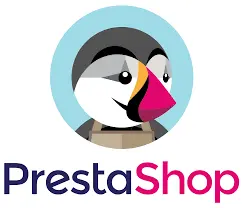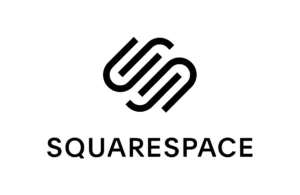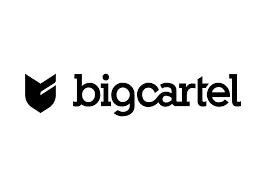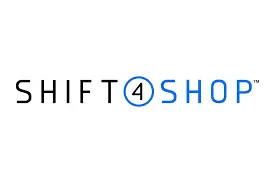- Shopify – All-in-one solution with app store and 24/7 support.
- Best for: Beginners needing plug-and-play setup
Wix – Drag-and-drop designer with artistic templates.
Best for: Visual-heavy small stores-
BigCommerce – Enterprise features without enterprise complexity.
Best for: Fast-scaling businesses -
WooCommerce – WordPress plugin for complete customization.
Best for: WordPress users -
Squarespace – Gallery-style layouts with blogging tools.
Best for: Creatives and portfolios -
Big Cartel – Ultra-simple platform for handmade goods.
Best for: Artists and makers -
Square Online – Free plan with POS integration.
Best for: Physical retailers -
Shift4Shop – Full-featured free platform with payment processing.
Best for: Cost-conscious sellers -
Weebly – Simple builder with Square integration.
Best for: Quick starter stores -
PrestaShop – Open-source platform with advanced customization.
Best for: Tech-savvy sellers & European markets
1. Shopify

Why choose this ecommerce platform?
Shopify offers scalability, fast setup, and 24/7 support. It’s ideal for beginners.
Plans and pricing
Starts at $39/month. Advanced plans support larger stores.
Ecommerce features
Built-in payments, mobile-ready themes, and sales channel integration.
Pros:
- Fast setup and hosting included
- App store extends functionality
Cons:
- Costs can grow with add-ons
2. Wix

Why choose this ecommerce platform?
Wix works well for small catalogs. It’s design-friendly and low cost.
Plans and pricing
Ecommerce plans start at $27/month.
Ecommerce features
Drag-and-drop builder, custom domains, and secure checkout.
Pros:
- Easy design tools
- Good for service-based startups
- Limited scalability
3. BigCommerce

Why choose this ecommerce platform?
BigCommerce supports fast-growing businesses. It handles complex catalogs and offers deep analytics.
Plans and pricing
Starts at $29/month. Higher tiers unlock more features.
Ecommerce features
Multi-channel sales, bulk pricing, and custom checkout.
Pros:
- Strong SEO and analytics
- Scalable for enterprise use
- Learning curve for new users
4. PrestaShop

Why choose this ecommerce platform?
Open-source platform for businesses wanting full control and customization.
Plans and pricing
Free to download. Hosting, themes, and modules cost extra.
Ecommerce features
Multi-language support, product bundles, advanced SEO tools.
Pros:
- High flexibility with modules
- Strong global commerce support
- Requires technical knowledge and manual updates
5. WooCommerce

Why choose this ecommerce platform?
WooCommerce works best for WordPress users. It’s flexible and free to start.
Plans and pricing
Free core plugin. Hosting and add-ons cost extra.
Ecommerce features
WordPress integration, open-source code, plugin library.
Pros:
- Full design control
- Strong community support
- Requires technical setup
6. Squarespace

Why choose this ecommerce platform?
Squarespace suits product and service businesses focused on design.
Plans and pricing
Commerce plans start at $27/month.
Ecommerce features
Templates, appointment booking, email marketing.
Pros:
Clean templates
Built-in marketing tools
Less flexible for advanced ecommerce
7. Big Cartel

Why choose this ecommerce platform?
Best for artists and hobby sellers. Simple and affordable.
Plans and pricing
Free for up to 5 products. Paid plans start at $9.99/month.
Ecommerce features
Product customization, discount codes, real-time stats.
Pros:
- Free plan for small shops
- No hidden fees
- Not built for scale
8. Square Online

Why choose this ecommerce platform?
Great for businesses that already use Square POS.
Plans and pricing
Free plan available. Paid plans start at $29/month.
Ecommerce features
POS sync, curbside pickup, and Instagram integration.
Pros:
- Easy for offline sellers
- No startup cost
- Limited design control
9. Shift4Shop

Why choose this ecommerce platform?
Shift4Shop suits tech-savvy startups needing more control.
Plans and pricing
Free plan available with Shift4 payment use.
Ecommerce features
Built-in SEO, real-time shipping, CRM tools.
Pros:
- Good for developers
- No platform fees with payment integration
- Basic templates
10. Weebly

Why choose this ecommerce platform?
Great for beginners who want drag-and-drop setup and simple tools.
Plans and pricing
Free plan available. Ecommerce starts at $12/month.
Ecommerce features
Basic inventory tools, mobile-friendly themes, built-in marketing.
Pros:
- Easy to use for non-tech users
- Low startup cost
- Limited ecommerce scalability
Need a custom ECommerce website for your business, get a free quote by visiting our e-commerce development service page.
FAQs
What is the best ecommerce platform for a small startup?
Shopify works best for fast setup and scalability. Wix and Square Online suit smaller budgets.
Which ecommerce platform is easiest to set up?
Wix and Shopify offer drag-and-drop tools and guided setup. They require no coding.
Can I start an ecommerce store with no money?
Yes. Platforms like Square Online and Big Cartel offer free plans with basic features.
What features should a startup ecommerce platform have?
Look for secure checkout, inventory tools, SEO settings, and built-in marketing.
How much does it cost to run an ecommerce store?
Monthly fees start around $9.99. Add-ons, plugins, and transaction fees may increase costs.
Which platform supports both online and offline sales?
Square Online syncs with Square POS. Shopify also supports in-store sales.
What’s the difference between hosted and self-hosted platforms?
Hosted platforms include hosting and maintenance. Self-hosted ones require manual setup and updates.
Can I switch platforms later?
Yes, but migration may involve data export, design rebuilds, and downtime.
Which platform works best for digital products or services?
Wix, Squarespace, and WooCommerce support digital downloads and booking services.
Do ecommerce platforms handle taxes and shipping?
Most platforms offer tax automation and shipping label tools or integrations.
